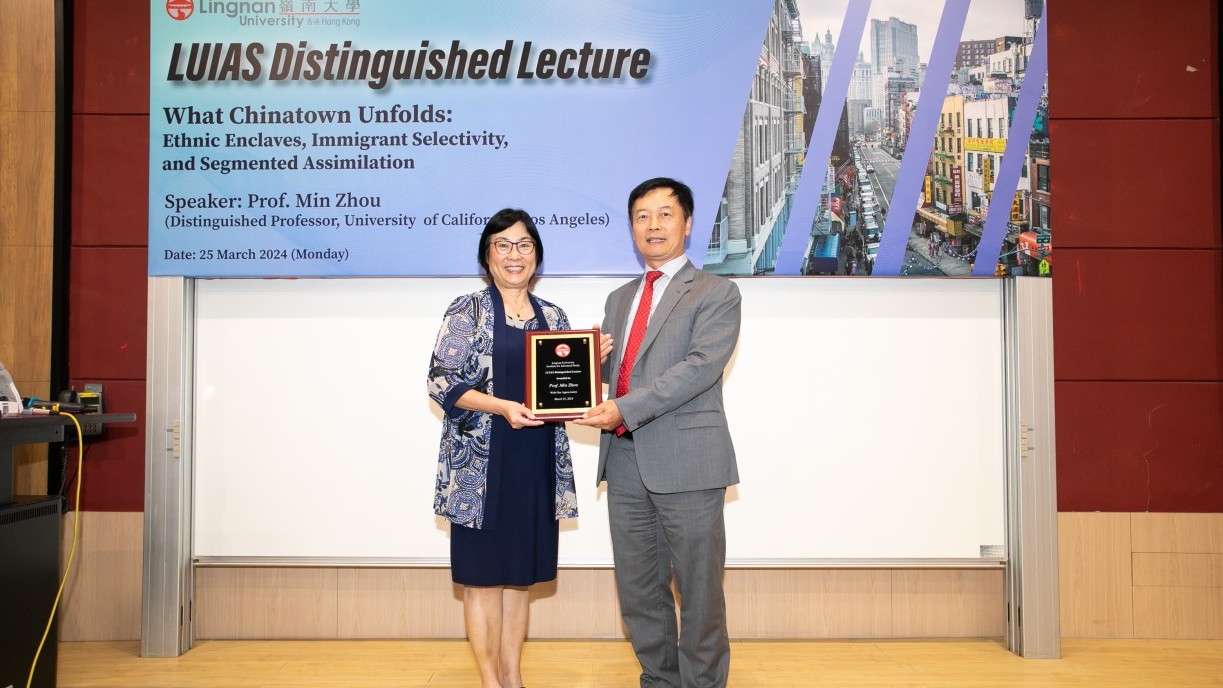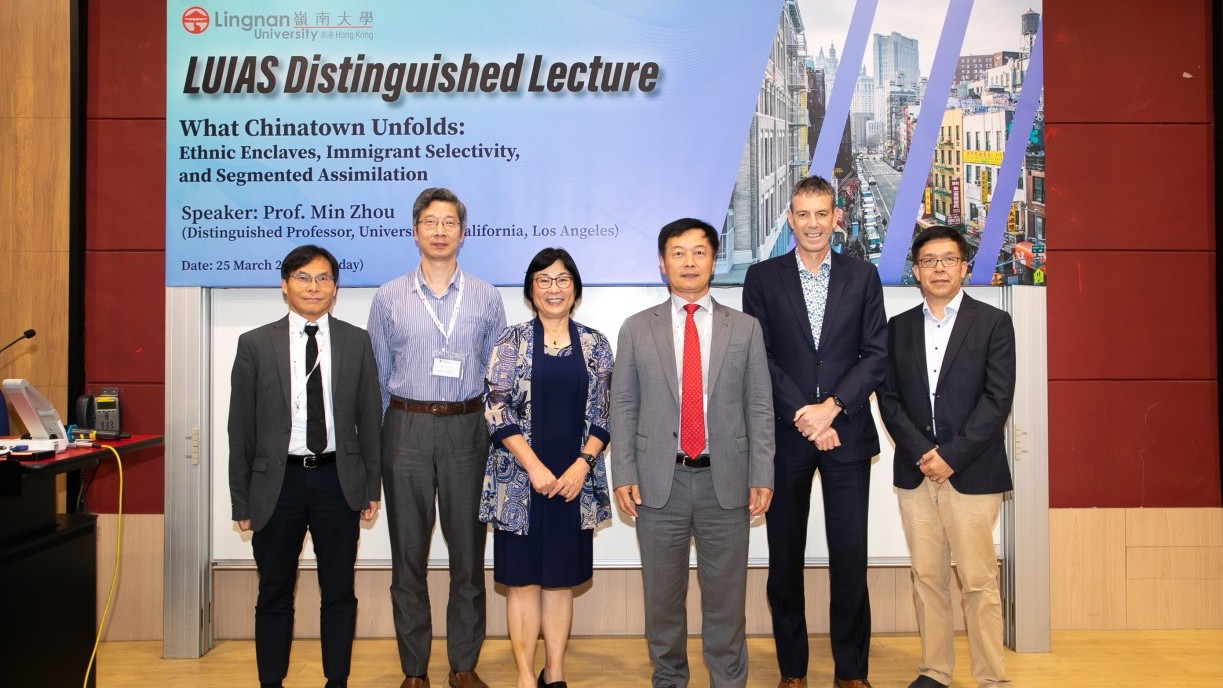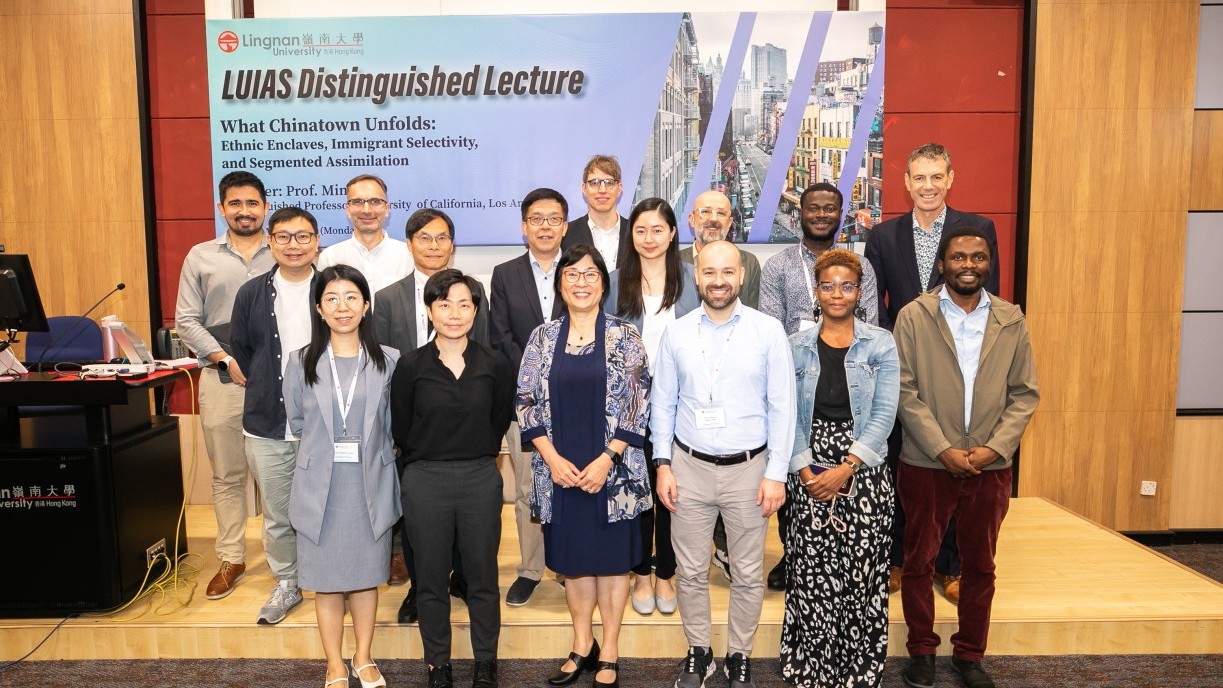Lingnan Fellow Prof Zhou Min gives Distinguished Lecture on Chinatown’s ethnic implication
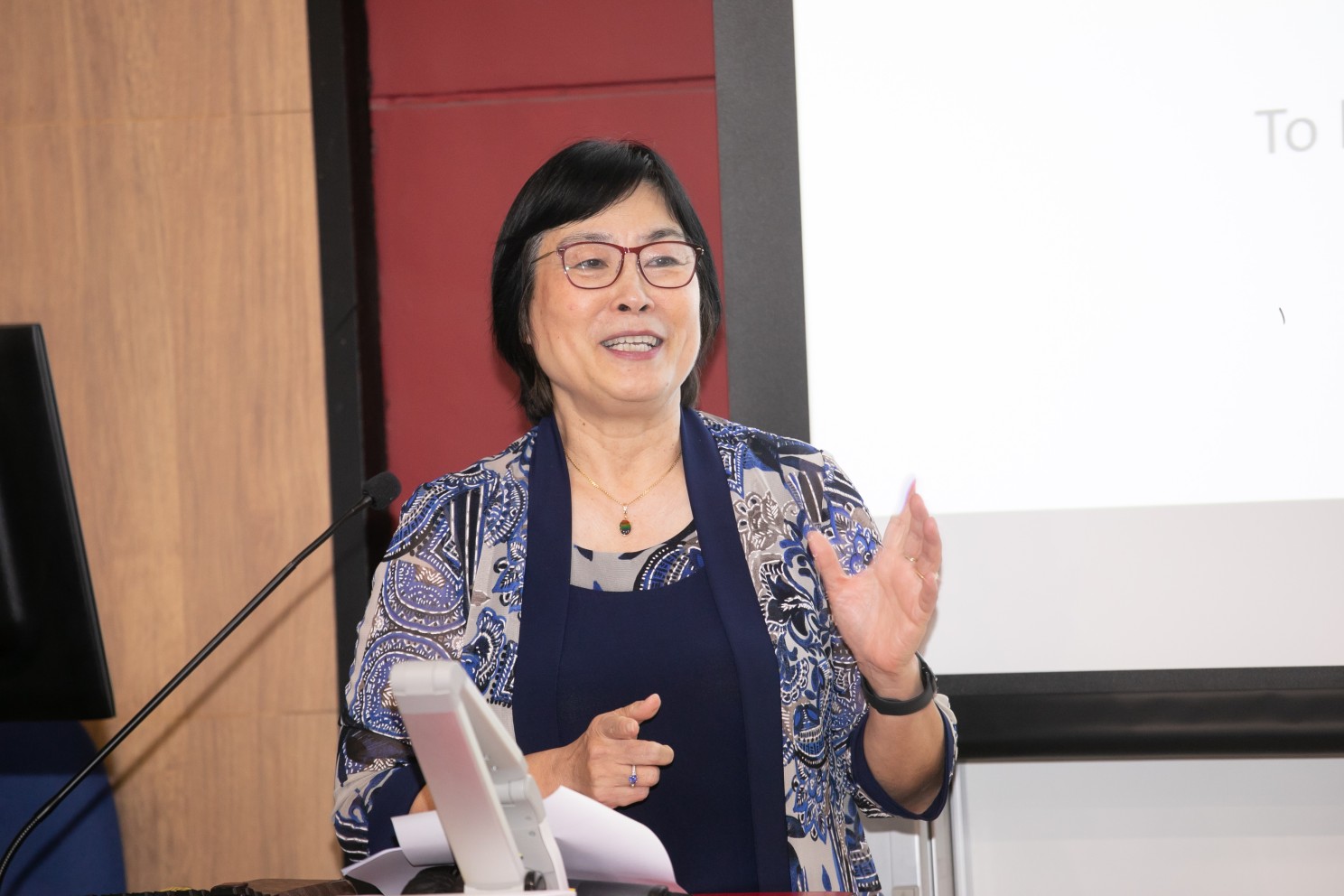
Among the first cohort of Lingnan Fellows, Prof Zhou Min is an elected member of the National Academy of Sciences and the American Academy of Arts and Sciences, and a Distinguished Professor of Sociology and Asian American Studies and Walter and Shirley Wang Endowed Chair in US-China Relations and Communications at the University of California, Los Angeles.
On 25 March, the inaugural event of the newly established Lingnan University Institute for Advanced Study (LUIAS) took place with Lingnan Fellow Prof Zhou Min’s Distinguished Lecture on “What Chinatown Unfolds: Ethnic Enclaves, Immigrant Selectivity, and Segmented Assimilation” to a hundred staff and students of Lingnan University.
Prof Zhou underscored the significance of Chinatown as one of the main ethnic enclaves in immigrant gateway cities of the US. Recounting her nearly 40 years of living as an immigrant and a scholar of migration studies, Prof Zhou examined key sociological concepts such as ethnic enclaves and segmented assimilation, explaining why patterns of diasporic formation differ over time, and why outcomes of social mobility are segmented and vary across ethnoracial groups.
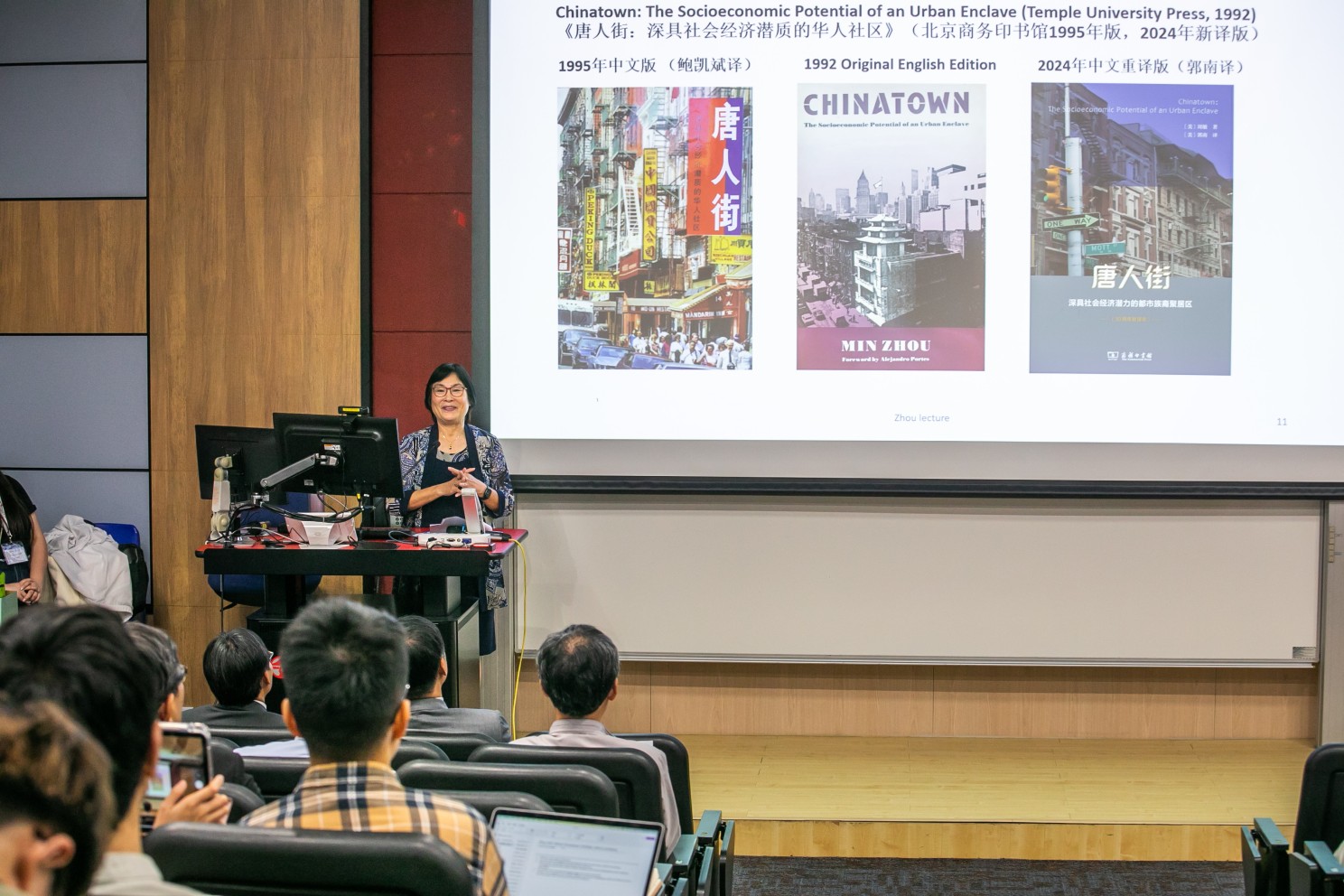
Prof Zhou inspires the audience and broadens students' critical thinking and analytical skills with her distinctive perspective.
The seminar provided an invaluable opportunity for students and colleagues to gain knowledge and insights into the latest research of this brilliant international scholar on the pertinent and timely topic of migration, and also showed how advanced research methodologies could be used.


